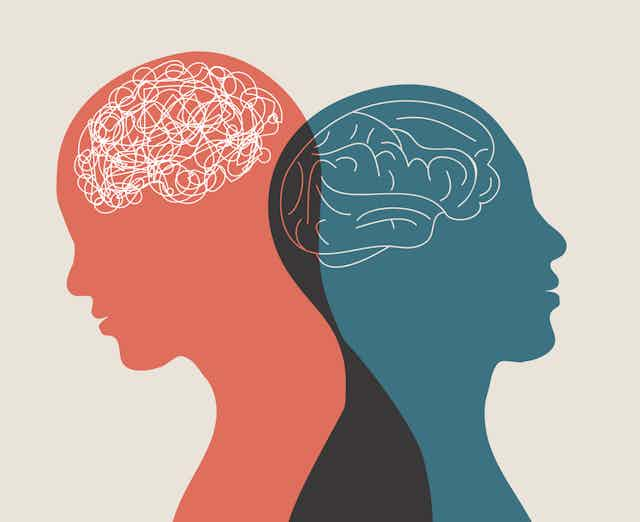Experience Lasting Adjustment with the Best Psychologist in Delhi: Here's How
Experience Lasting Adjustment with the Best Psychologist in Delhi: Here's How
Blog Article
Psych Therapy: A Comprehensive Guide to Strategies and Results

Cognitive-Behavioral Treatment
Cognitive-Behavioral Treatment (CBT) is a commonly used psychotherapeutic method that concentrates on determining and modifying dysfunctional reasoning and habits patterns. Established in the 1960s by Aaron T. Beck, CBT incorporates cognitive and behavior theories to deal with different psychological health concerns, including depression, anxiety, and stress-related conditions. The facility of CBT is that maladaptive ideas add to emotional distress and maladaptive habits. By restructuring these thoughts, individuals can achieve significant enhancements in their emotional well-being and day-to-day performance.
CBT is identified by its structured, ambitious nature. Therapy typically involves a joint procedure in between the therapist and customer, where details troubles are recognized, and useful techniques are created to address them. Techniques such as cognitive restructuring, exposure therapy, and skill-building exercises are frequently utilized. Cognitive restructuring includes challenging and altering negative thought patterns, while exposure treatment aims to lower anxiety and anxiety through gradual exposure to feared circumstances or things.
Evidence-based study sustains the efficiency of CBT for a wide variety of emotional disorders - Best Psychologist in Delhi. Its emphasis on ability acquisition and self-help techniques equips customers to proceed development independently after treatment concludes. The versatility and efficiency of CBT have made it a foundation in modern psychotherapeutic practice
Psychodynamic Approaches
Rooted in the very early concepts of Sigmund Freud, psychodynamic approaches concentrate on discovering the unconscious mind and its influence on behavior and emotions. These approaches intend to uncover surprise ideas and sensations that might be driving maladaptive behaviors and mental distress. Central to this method is the concept of internal problem, usually coming from unsolved past experiences, especially those from childhood.
Therapists using psychodynamic strategies utilize numerous key approaches, including cost-free organization, where people are motivated to talk easily to expose subconscious product, and dream evaluation, which translates the latent material of desires. In addition, the expedition of transfer and countertransference dynamics within the healing relationship is vital. These interactions can provide understandings right into the client's interior globe and relational patterns.
Psychodynamic therapy is normally longer-term contrasted to various other modalities, supplying a deep and comprehensive understanding of the individual's subconscious. Research study shows that it can be specifically efficient for complex mental health concerns, such as character conditions and persistent depression. By fostering self-awareness and emotional understanding, psychodynamic treatment looks for to bring subconscious product to awareness, enabling individuals to accomplish lasting and meaningful modification in their lives.
Humanistic Techniques
Structure on the foundations laid by psychodynamic approaches, humanistic methods provide a distinctive viewpoint concentrated on individual possible and self-actualization. Coming from the mid-20th century, these techniques focus on the integral goodness and growth possibility of individuals, stressing an all natural view of human experience. Secret figures such as Carl Rogers and Abraham Maslow have actually considerably affected this healing technique, which includes methods like client-centered therapy and Gestalt therapy.
Client-centered treatment, created by Rogers, plays a pivotal function in humanistic methods. It depends on the therapist giving an environment of unconditional positive regard, empathy, useful site and harmony. This fosters a secure area for clients to discover their feelings and experiences without judgment, helping with self-discovery and personal development. The specialist's function is more of a facilitator than an authority, urging clients to harness their inner sources for recovery.
Gestalt therapy, another important humanistic strategy, emphasizes existing moment understanding and the integration of body and mind. By concentrating on the "below and now," customers gain higher understanding into their existing emotions and actions. Methods such as role-playing and guided visualization are commonly employed to help customers obtain a deeper understanding of themselves, eventually bring about enhanced self-awareness and fulfillment.
Integrative Therapies
Integrative treatments represent a synthesis of numerous healing strategies customized to satisfy the special needs of each customer. This approach recognizes the complexity of human psychology and the complex nature of mental wellness issues. By integrating aspects from various schools of psychiatric therapy-- such as cognitive-behavioral treatment (CBT), psychodynamic treatment, and humanistic strategies-- integrative therapies provide a more alternative and adaptable therapy paradigm.
Experts of integrative therapy analyze each customer's particular needs, signs, and personal history to create a tailored treatment strategy. This customized strategy improves the possibility for therapeutic success by addressing the origin of emotional distress and advertising total well-being. Strategies might include mindfulness workouts, cognitive restructuring, and emotional processing, each picked to target different facets of the customer's concerns.
Additionally, integrative treatments highlight the therapeutic relationship, watching the client-therapist bond as a crucial part of efficient treatment. This relationship cultivates a supportive environment where customers really feel safe to check out and address their problems. The flexibility of integrative treatments makes them suitable for a broad variety of problems, consisting of stress and anxiety, anxiety, trauma, and interpersonal problems, consequently raising their applicability and efficiency in varied scientific setups.

Measuring Therapy Outcomes
Assessing the efficiency of psychiatric therapy is vital for both clinicians and clients to make certain that the therapy is generating the wanted end results. To attain this, numerous techniques and devices are utilized more helpful hints to gauge therapy results methodically. Standard assessment instruments, such as the Beck Clinical Depression Supply (BDI) and the Generalized Anxiousness Disorder 7 (GAD-7), provide measurable data on signs sites and symptom severity and adjustments gradually.
In addition to standard devices, qualitative approaches like customer self-reports and clinical meetings provide beneficial insights right into the individual experiences and regarded progression of customers. Regularly set up evaluations, usually at the start, axis, and end of therapy, aid in tracking the trajectory of improvement or determining areas needing adjustment.
End result dimension is not limited to symptom reduction; it additionally encompasses practical improvements in day-to-day life, such as better social connections, boosted job performance, and enhanced overall health. Modern developments in electronic health and wellness have actually presented mobile apps and on the internet platforms that facilitate real-time tracking and comments, better refining the evaluation process.
Eventually, an extensive approach to gauging therapy results makes sure that healing interventions are effective, effective, and tailored to meet the private demands of clients, consequently maximizing the general restorative experience.
Final Thought
Humanistic strategies focus on personal growth and self-actualization, while integrative therapies incorporate numerous approaches for customized therapy strategies. Reviewing treatment results through qualitative approaches and standardized analyses guarantees a detailed understanding of performance, ultimately directing clients towards enduring mental health and wellness enhancements.
From the structured method of Cognitive-Behavioral Therapy (CBT) to the deep exploration of the subconscious in psychodynamic treatment, each technique brings distinct advantages. Its focus on ability procurement and self-help methods encourages clients to continue progress separately after therapy wraps up (Best Psychologist in Delhi). Trick figures such as Carl Rogers and Abraham Maslow have actually substantially influenced this healing strategy, which includes approaches like client-centered therapy and Gestalt therapy

Report this page